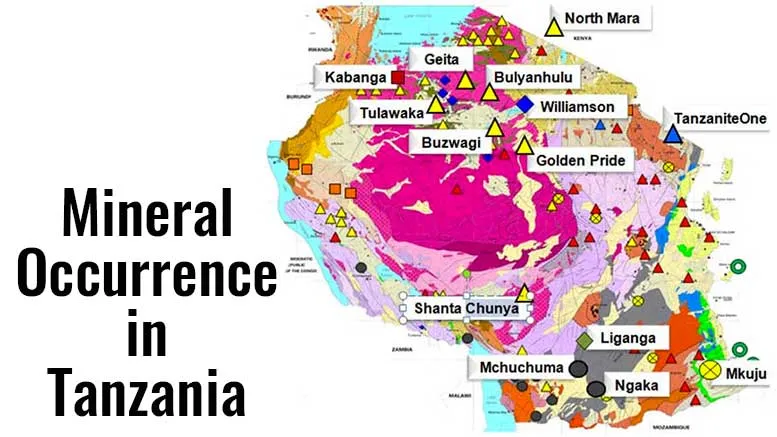Tanzania’s resource wealth, including vast reserves of natural gas, critical minerals, and agricultural potential, positions the country as an emerging player on the global stage. These resources fuel economic growth and underpin nations’ geopolitical strategies.
Historically, controlling commodities such as oil, gas, and metals has been central to global power dynamics, driving economic growth and shaping geopolitical strategies.
As Tanzania looks to leverage its resources, it faces challenges and opportunities to turn its commodities into instruments of global influence. This article explores Tanzania’s resource potential, the global power of commodities, and how strategic governance can help the nation carve out a significant role in regional and global markets.
The Centrality of Commodities in Global Power
The global economy relies heavily on the supply and trade of key commodities. Oil and gas, for instance, remain the lifeblood of industrialized nations, driving transportation, energy production, and manufacturing.
Countries with abundant hydrocarbon resources, such as Saudi Arabia, Russia, and the United States, leverage these assets to assert geopolitical influence.
OPEC (Organization of the Petroleum Exporting Countries) exemplifies how control over a vital commodity can translate into collective bargaining power capable of influencing global markets and political alliances.
Similarly, metals like lithium, cobalt, and rare earth elements are critical to modern technologies, including renewable energy systems and electronic devices.
Nations rich in these resources, such as China (which dominates rare earth production) and the Democratic Republic of Congo (a key supplier of cobalt), hold strategic leverage in the global transition to a green economy.
Agricultural products, while often overshadowed by industrial commodities, are equally significant. Grain exports, such as those from the United States, Ukraine, and Russia, directly affect global food security.
RELATED: The Uncertain Future of Tanzania’s Energy: Will the Lights Stay On? What About Blackouts?
For example, disruptions in grain exports due to conflicts, like the Russia-Ukraine war, have exacerbated food crises in Africa and the Middle East, demonstrating the geopolitical weight of agricultural commodities.
Resource Control and Global Stability
The pursuit of resource control has historically driven conflicts and alliances. The rich in oil, the Middle East has been a hotspot of geopolitical tension, with major powers vying for regional influence.
Similarly, the continent’s vast mineral wealth primarily motivated the scramble for Africa in the 19th and early 20th centuries.
In the modern context, competition for resources has expanded to the Arctic, where melting ice caps reveal untapped reserves of oil, gas, and minerals.
This has spurred rivalries among nations such as Russia, Canada, and the United States, raising concerns about militarization and environmental degradation.
Tanzania’s Position and Dynamics
Tanzania’s position in the global commodity landscape is multifaceted. Rich in natural gas, minerals, and agricultural potential, the country has the resources to become a significant player in regional and global markets. Key developments in Tanzania include:
1. Natural Gas: Tanzania has vast reserves of natural gas, particularly offshore in the Indian Ocean. Projects like the planned liquefied natural gas (LNG) terminal could position the country as a major energy exporter, with implications for its economic growth and regional influence. However, challenges such as infrastructure development, regulatory frameworks, and global energy transition policies must be addressed.
2. Minerals: Tanzania is one of Africa’s leading gold producers and holds significant reserves of critical minerals like nickel and graphite. These resources are essential for electric vehicle batteries and renewable energy technologies, aligning Tanzania with global efforts toward sustainability. Leveraging these resources effectively could enhance its geopolitical relevance.
3. Agriculture: As an agrarian economy, Tanzania has the potential to contribute significantly to global food security. Cash crops like coffee, tea, and cashew nuts are vital exports. However, achieving this potential requires addressing challenges such as low productivity, inadequate infrastructure, and vulnerability to climate change.
Challenges and Opportunities
Despite its resource wealth, Tanzania faces several challenges in leveraging its commodities for geopolitical influence:
- Infrastructure Deficits: Poor transport and energy infrastructure hinder resource-efficient exploitation and export.
- Policy Consistency: Frequent regulatory changes can deter foreign investment, which is crucial for large-scale projects.
- Global Competition: Tanzania must navigate competition from established players in the global markets for gas, minerals, and agricultural products.
However, there are significant opportunities as well:
- Strategic Partnerships: Collaborating with emerging powers like China and India can help Tanzania build infrastructure and access new markets.
- Regional Integration: Through platforms like the East African Community (EAC) and the Southern African Development Community (SADC), Tanzania can enhance its bargaining power and secure favourable trade terms.
- Sustainability: Embracing sustainable practices can position Tanzania as a reliable and ethical supplier, attracting environmentally conscious investors.
Commodities are not just economic assets but instruments of power that shape global dynamics. Tanzania, with its abundant resources, is well-placed to enhance its influence and economic standing.
However, achieving this potential requires strategic governance, investment in infrastructure, and effective participation in global markets. By addressing these challenges, Tanzania can assert itself as a key player in the global commodity landscape, contributing to its development and regional stability.

